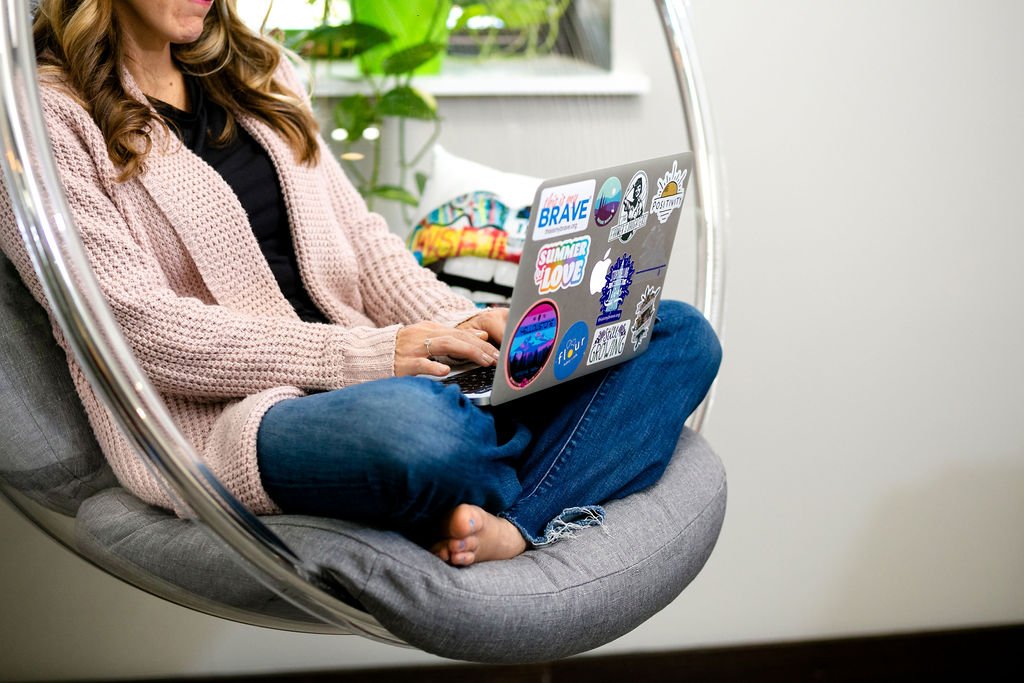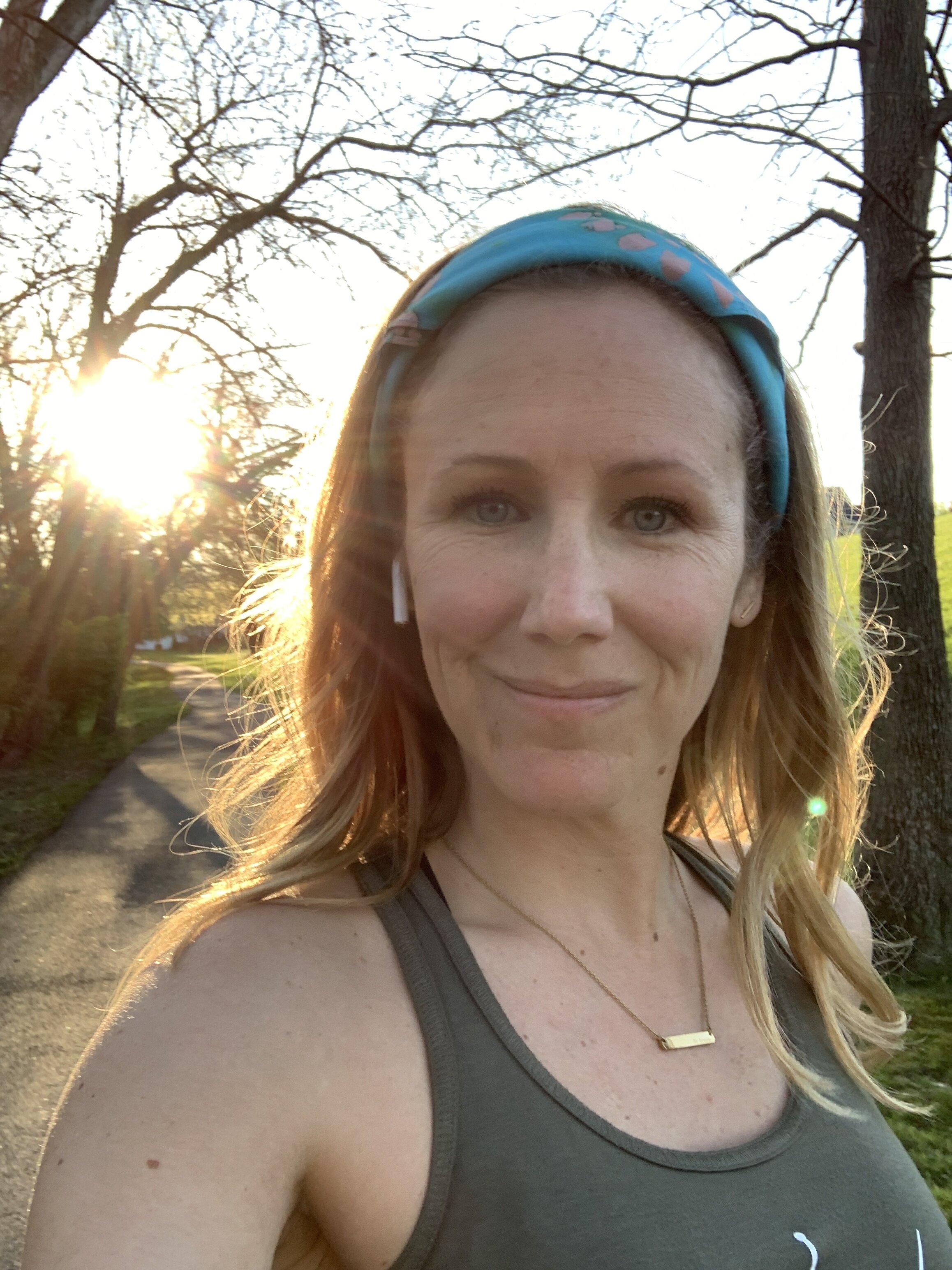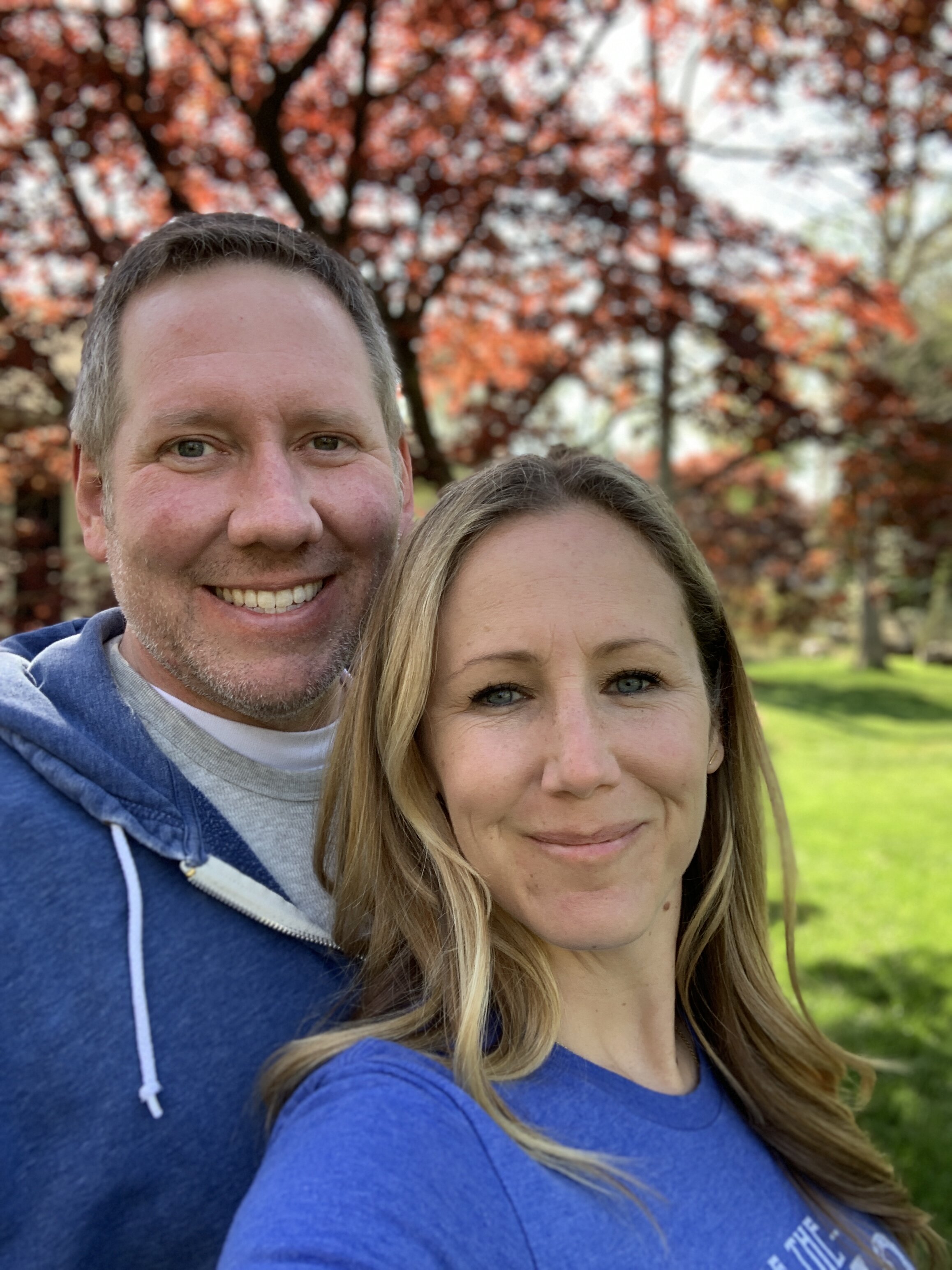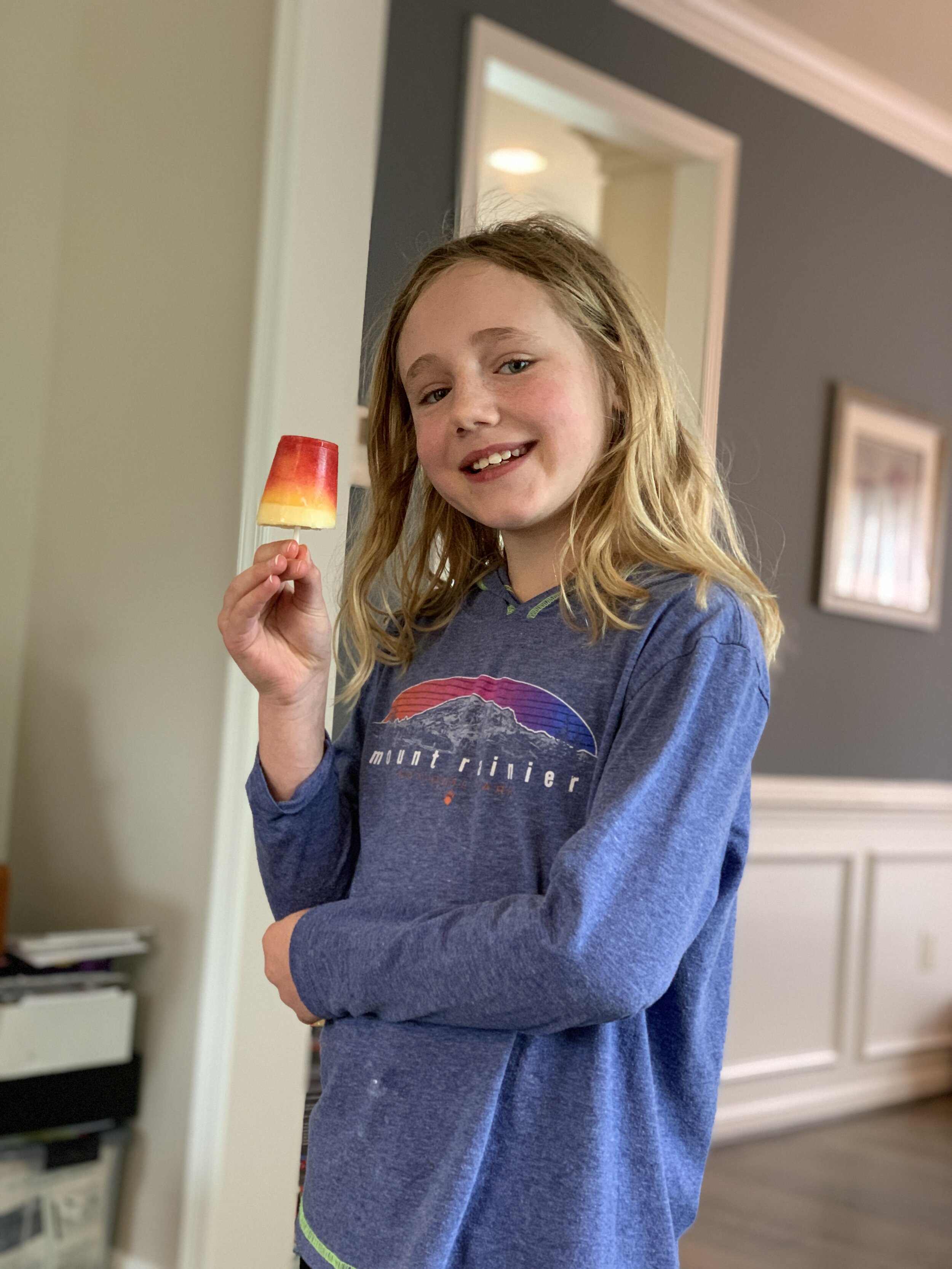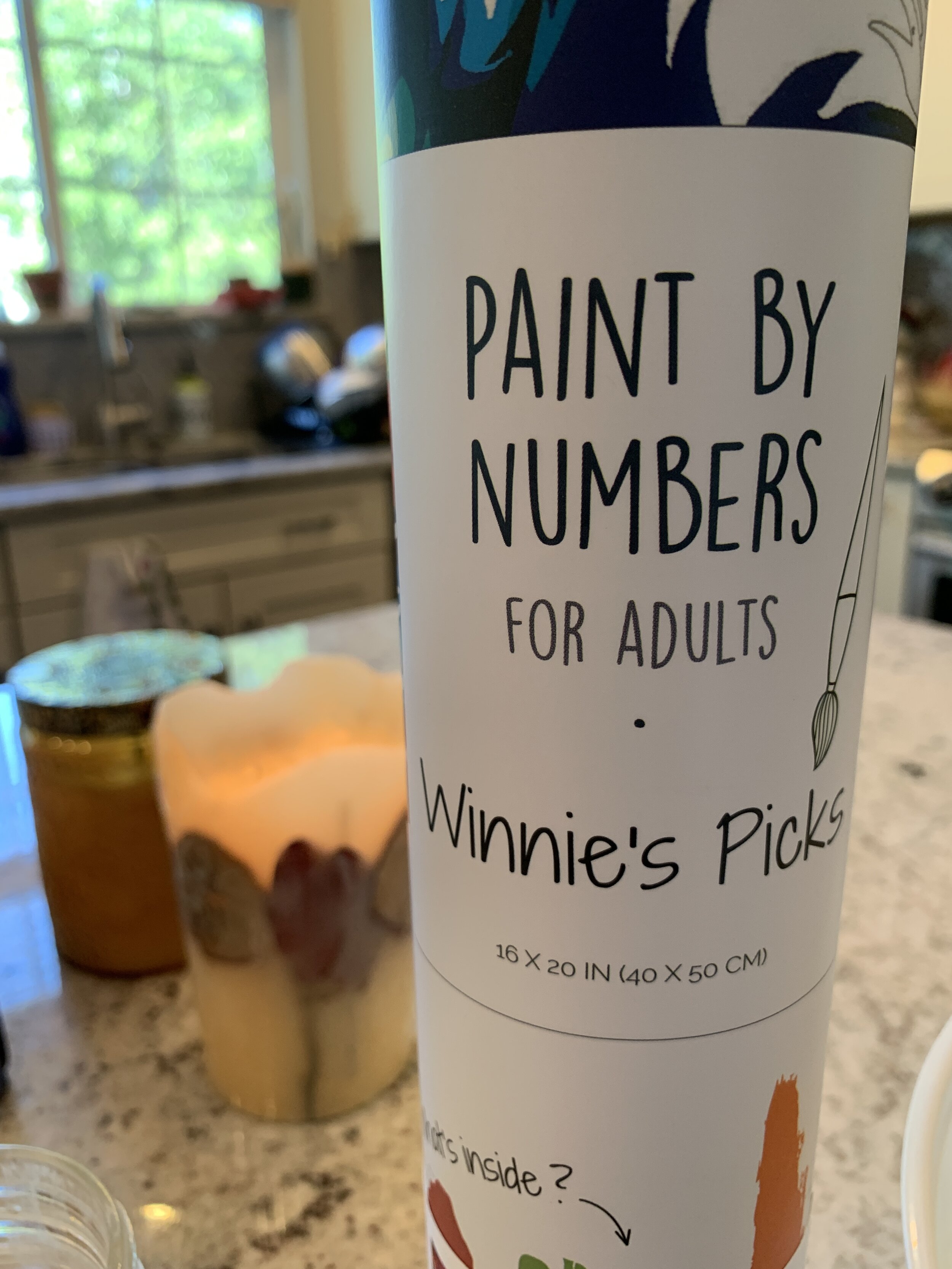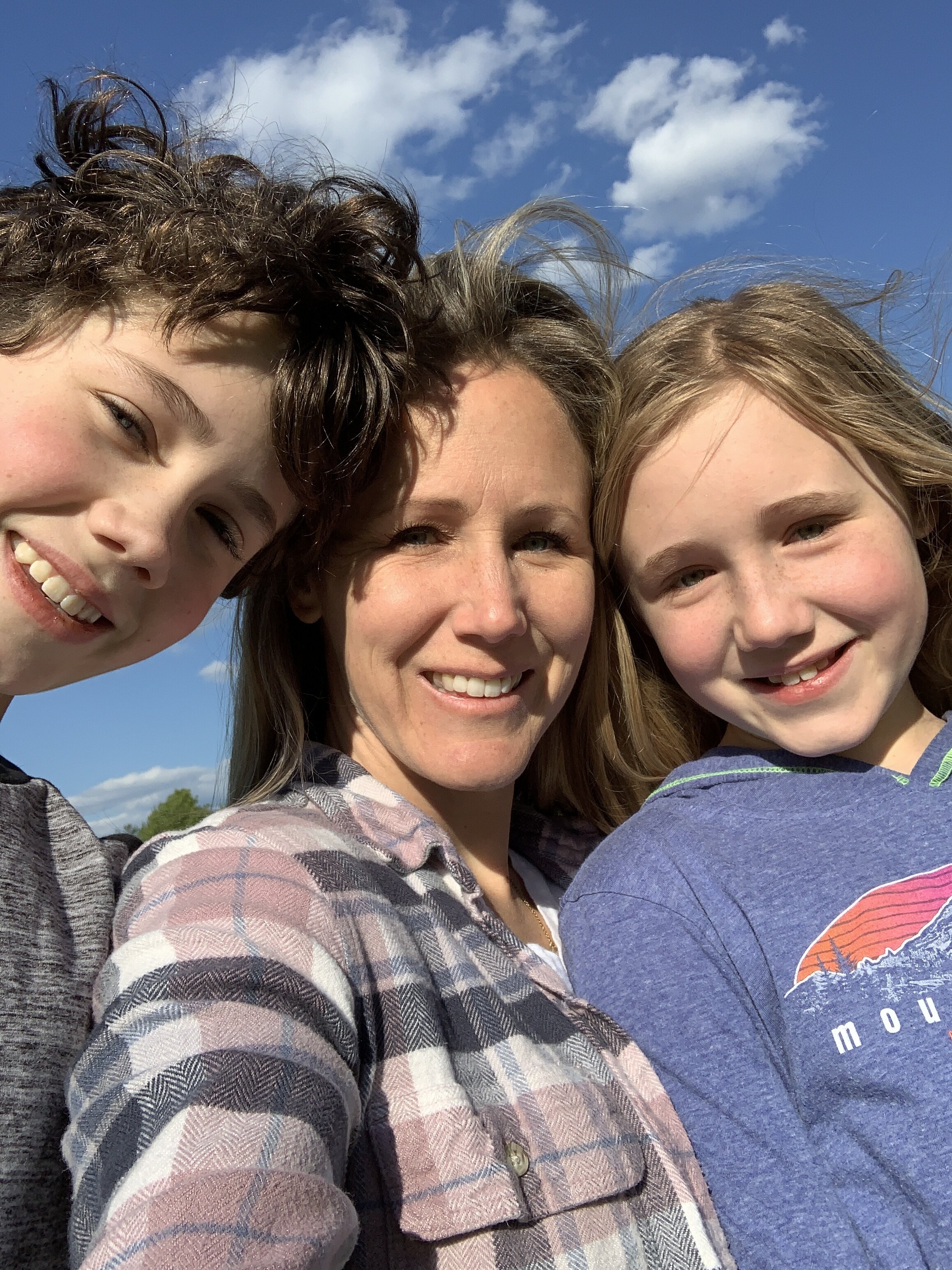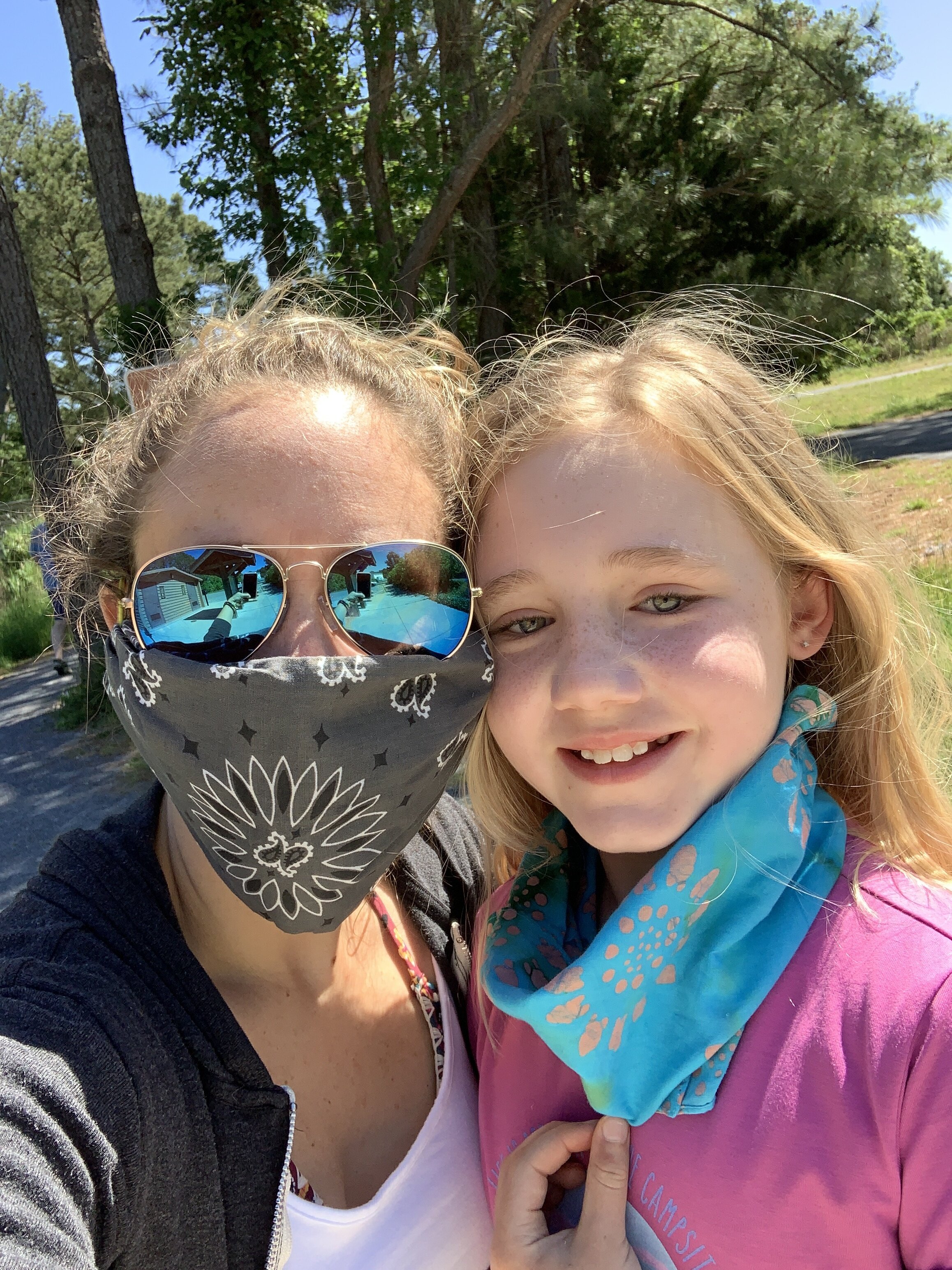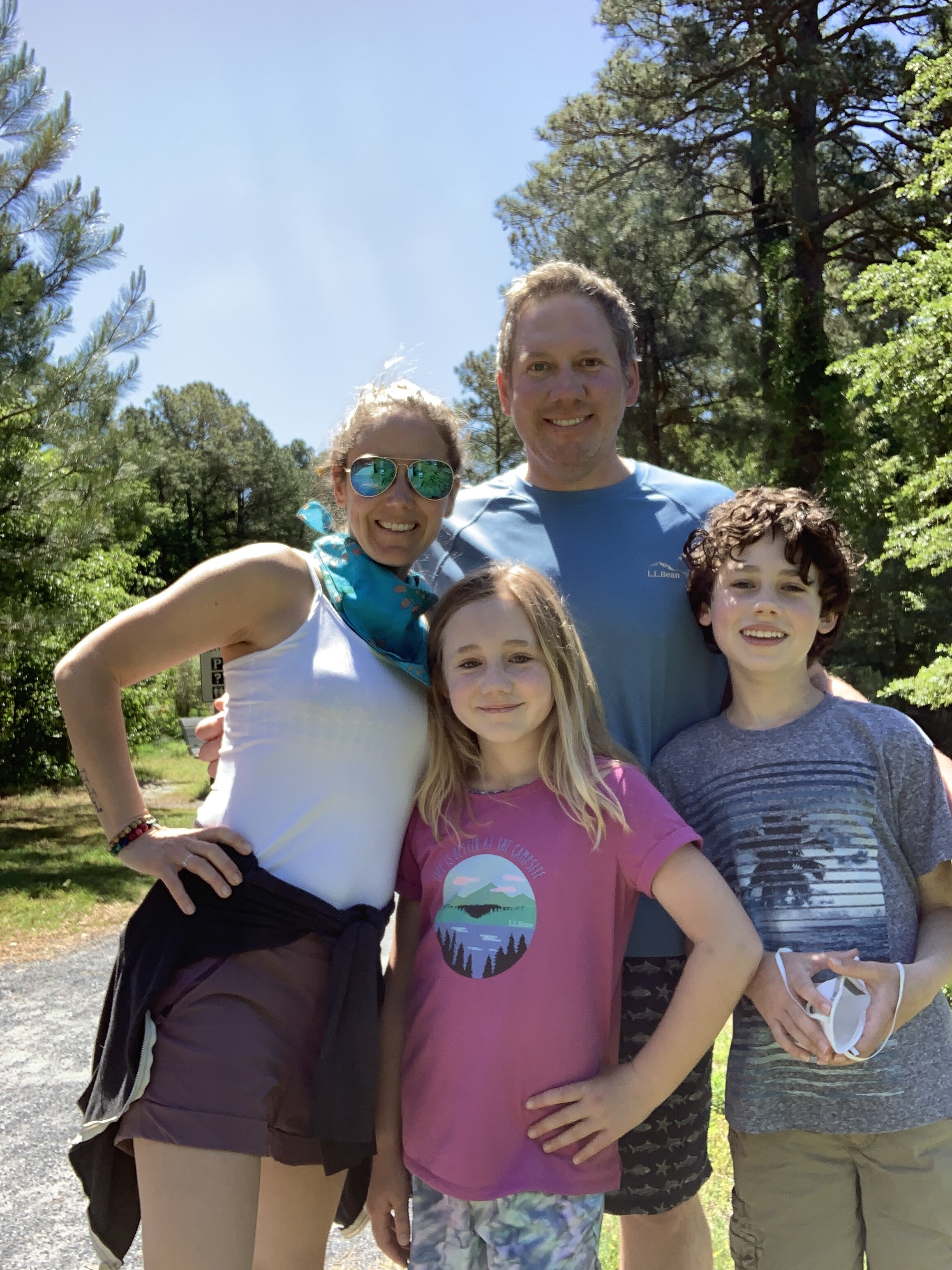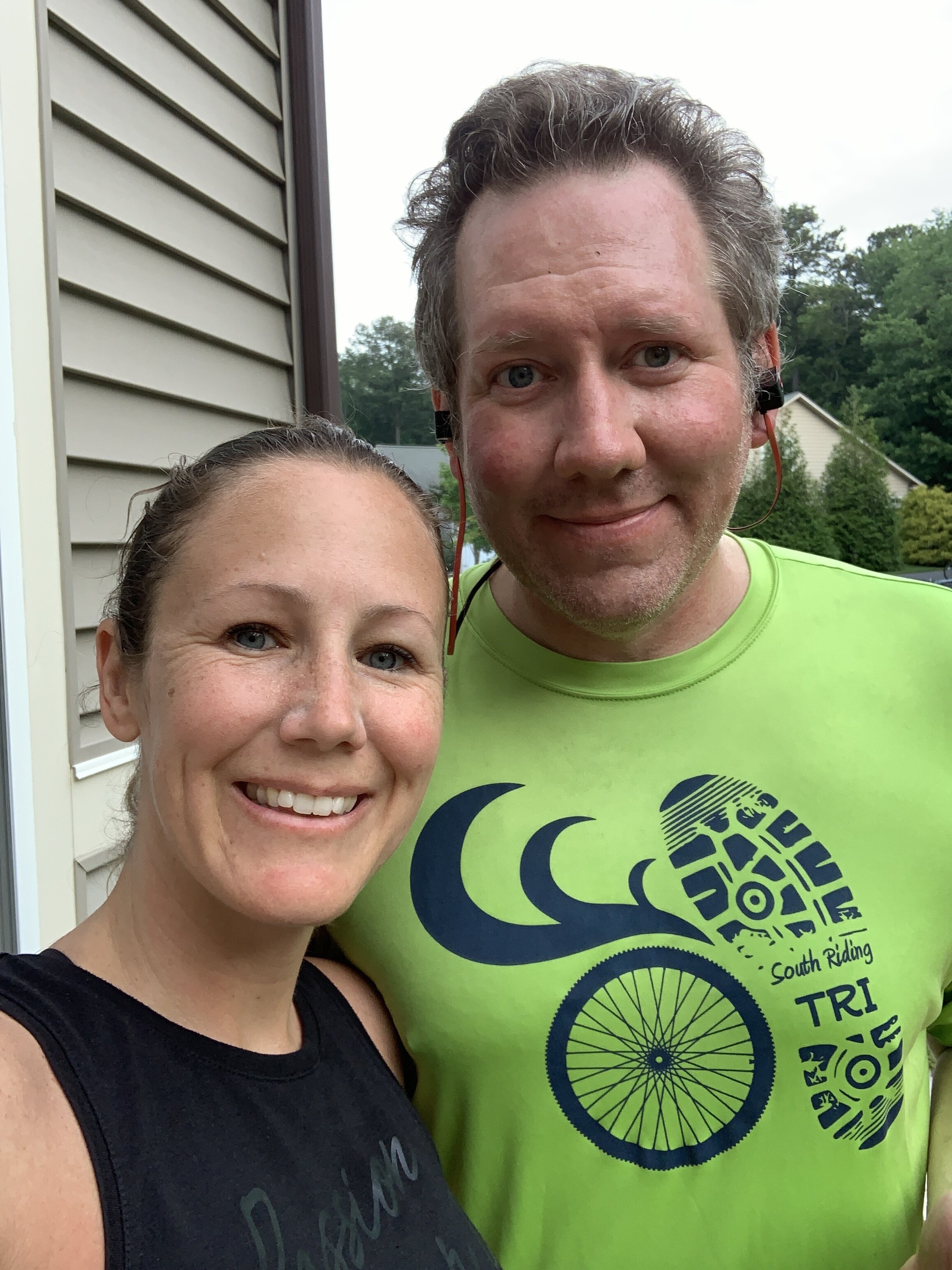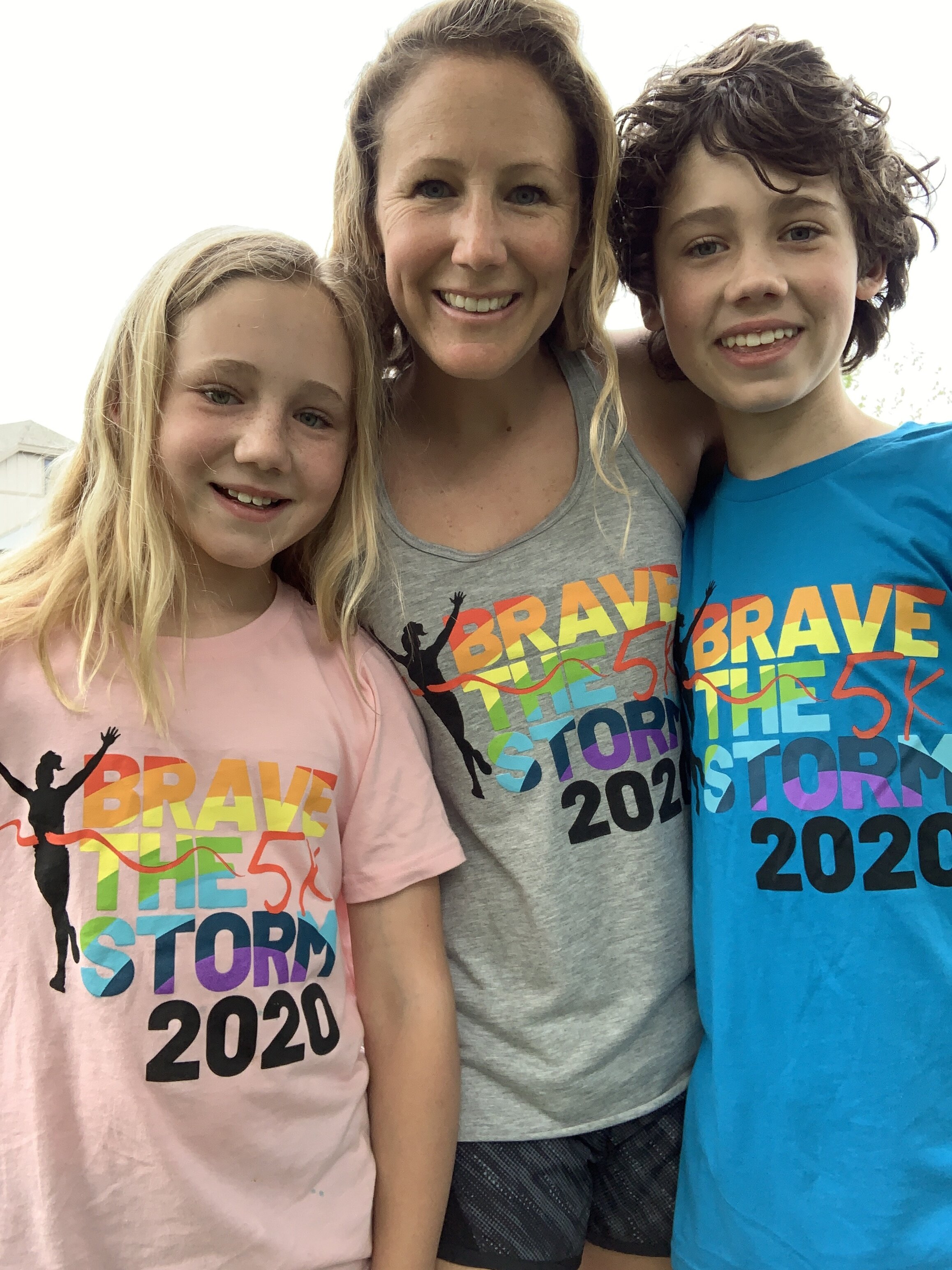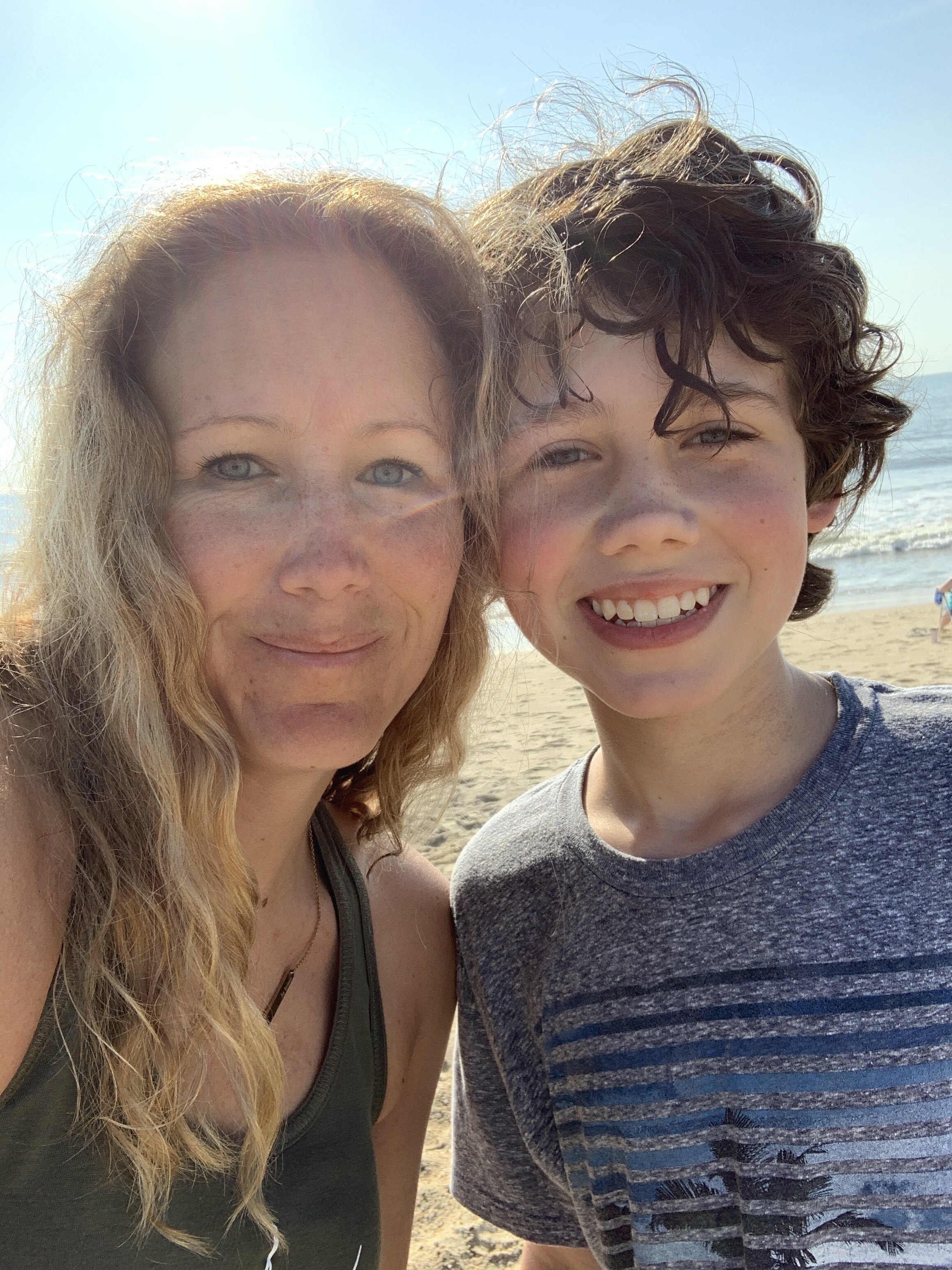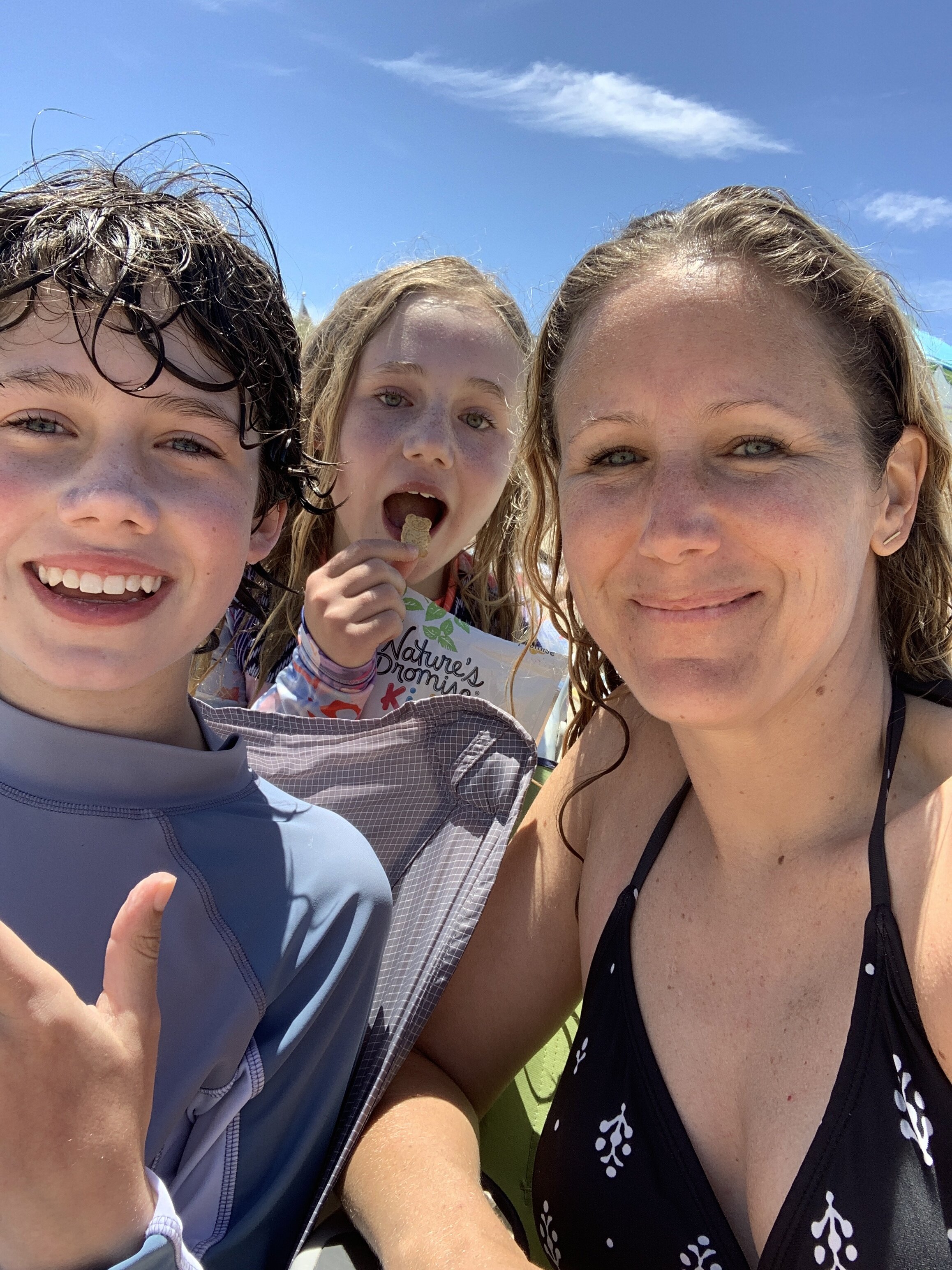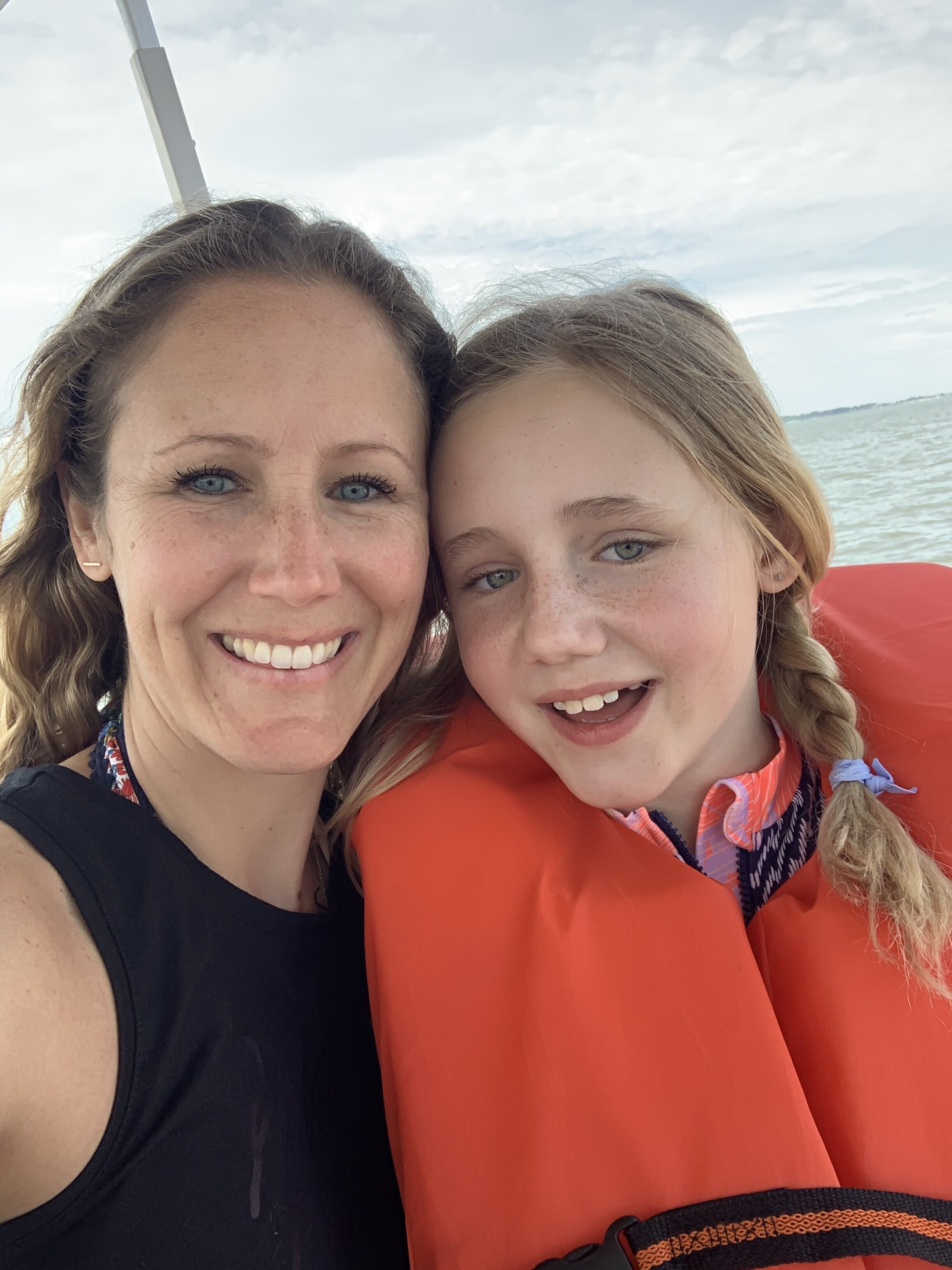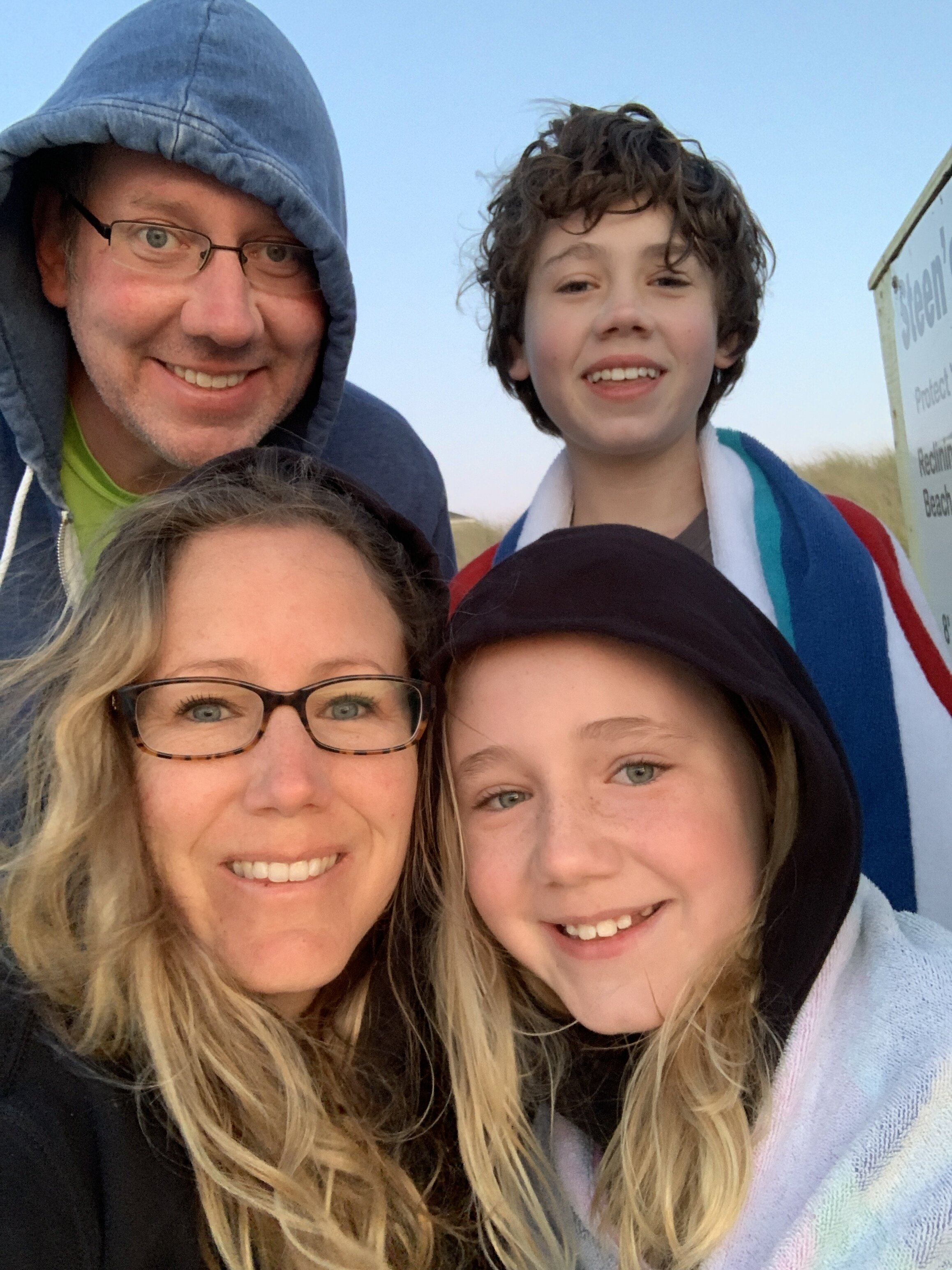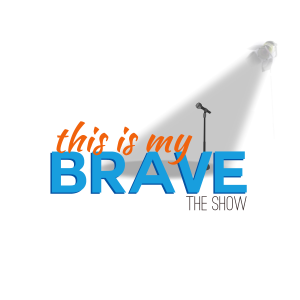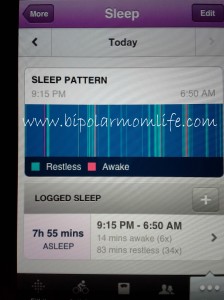If we never make it past the small talk to really open up to a friend or neighbor about our depression, or our anxiety or our eating disorder or whatever it is that we’ve hid for so long because we were scared of being judged, then how would our friend ever be able to love us as who we are?
Read moreThe Neil Gaiman at the End of the Universe
“My anxiety spiked as Michael Patrick Jann, the Director of the project welcomed me to the stage. I had listened to the story several times before the event, but in the moment my mind was a blur of nervous energy….”
Read moreWhy I'm hopeful for the future despite COVID-19
It’s been four months since coronavirus came to light in the US and regular, everyday life changed pretty drastically for the majority of us. We’re now used to wearing masks whenever we go anywhere outside the home, haven’t been many places other than the grocery store and the pharmacy, and zoom calls have become the norm.
My kids’ school and activities came to a screeching on March 12th, and my anxiety soared through the roof the week of March 16th, as I grappled with how to juggle full-time work, homeschool and keeping my sanity. I went through a week of hypomania, difficulty sleeping and intense anxiety, but through it all, I knew I was going to be fine. I am very fortunate to have a strong support system and access to care. I addressed my mental health needs before they got to a tipping point, which I hadn’t been able to do in the past.
Previous experience came in handy
Right when I noticed my symptoms coming on (broken sleep, anxiety rippling through my body much of the day, uneasy stomach which made the thought of food intensely unappealing), I immediately contacted my psychiatrist to set up an urgent appointment. (In fact, I texted her at 5:23am, which in hindsight could have waited until at least 7am, but I was being proactive one morning when I couldn’t sleep.) Because we were under a Stay-at-Home order by the Governor of the State of Virginia, my psychiatrist’s office had to convert all appointments to telehealth. Nationwide, fast-acting measures were taken by Congress to ease restrictions on telehealth services, to make it easier for doctors to see their patients virtually. My doctor was able to switch to a telehealth setup rather quickly, and I was able to get an appointment within about a week of requesting the appointment.
With a week and two days until my appointment, I was forced to do my best to keep my hypomania from accelerating into mania on my own until I could see my doctor. I knew from my years of living with bipolar that sleep was the most important thing to take care of, so I focused on carefully using the medicine I had on hand to address my sleeplessness. Following my past prescriptions for sleep medicine, I took the appropriate dose each night and forced myself to sleep.
Looking out for our mental health should be routine, because: life
I knew I’d be okay because I have an incredible support system and access to good care. I see my therapist weekly, and when I saw my psychiatrist we made a plan with a new medicine and I got the prescription filled that day. Still, it was a scary week and a half, plus another week or so of adjusting to a new medicine. Even when you're really good at taking care of your mental health, when something like COVID-19 happens out of nowhere, it's natural for us to feel off balance. We're only human, after all.
I’m doing my best to take care of my mental health and set a good example for my kids. Which wasn’t easy when my anxiety soared about the uncertainty COVID-19 brought. What helps me is knowing that the entire world is in this together. As much as I try not to dwell on the fact that so much of this year has been disappointing (our spring break trip to Zion National Park trip in March was cancelled, our kids’ summer swim season was cancelled, and not being able to gather with friends like we used to - all has brought me down), I do allow myself to vent when I feel the need to release the tension of so many things being so different this year.
To alleviate my bouts of mild depression over the past few months, I’ve turned to long walks, jogging when I feel inspired, and meditations using the free app Insight Timer. These coping skills, in addition to getting outside every day for some sunshine to allow my body to soak up the Vitamin D, has helped tremendously. In the beginning of quarantine I got into TikTok, but have since deleted the app and my presence on it due to security concerns I read about. It’s taken me time to adjust to letting go of expectations and allowing the kids to navigate this time in their own way. Vivian is spending a lot of time in the kitchen trying different recipes and creating delicious masterpieces (while leaving a tornado of dirty dishes in her wake), while Owen is teaching himself coding and has created a new game in Roblox that he’s quite proud of.
I’m grateful for this time we’re having as a family, and all the extra time we’re enjoying together. Time with friends who don’t live close has become more regular with our Friday/Sunday evening zoom happy hours which we’ve kept going over these past four months. And no swim season has given us flexibility for the first time ever to visit my parents at the beach whenever we want. This season of uncertainty has helped me to remember what’s important in life, and how I want to not take things like hugs, traveling for work and pleasure, and in-person get-togethers for granted. Mental health has been thrust into the forefront because of COVID-19, which is one positive that’s come out of this pandemic. I’m looking forward to when we no longer have to worry about staying six feet apart, but until then, I’m doing my best to take advantage of this slower pace of life.
Today marks 6 years blogging
 {sunrise this morning, Bethany Beach, Delaware}
{sunrise this morning, Bethany Beach, Delaware}
Today is my 6-year blogiversary.
I still remember the day I decided to begin blogging about my story. I started a free Wordpress.com blog using a domain name I had purchased. I remember pausing before hitting "submit" on bipolarmomlife.com, thinking for a moment about the brand I was about to create. It was intentional. I wanted other moms out there, other families dealing with bipolar disorder and parenting, to know that they weren't alone and that it does get better. I wanted women to type "bipolar" and "mom" into Google and find me. That's how it all started.
Six years have felt like an instant. My son was only two and my daughter wasn't yet a year old when I started writing out the story of how bipolar had seemingly devastated my life. I was ready to begin writing my way through the pain of my past to heal myself. From my very first blog post:
Bipolar I is my diagnosis but I try not to let the label get to me too much. I definitely think about it on a daily basis, but I’m not embarrassed or ashamed of it anymore like I was back when I was first diagnosed. Sure, the stigma is still there, but it’s beginning to fade.
Each time I took to my laptop to tap out the thoughts and feelings swirling in my head from the memories of my struggle, I chipped away at the internal stigma that had attached itself to me when I was formally diagnosed with mental illness.
My blog was my safe, anonymous corner of the Internet for a year and a half. Friendships were forged from comments back and forth supporting each other's writing, validating each other's pain and progress.
And then an opportunity arose which would change the course of my life. An editor from WhatToExpect.com found my blog and asked me to write for them. It was my first paid writing job, and she wanted me to use my voice as a parent living with mental illness. That was a huge turning point for me. It was when I made the decision to put my name and face on my writing.
I knew that I'd never be able to make the impact on reducing stigma the way I wanted to until I put my true identity on my story.
So I took a risk.
I worried about future employment. I wondered if people would turn away from me. I feared what I didn't know.
I know now there was nothing to be afraid of in the first place.
None of my fears came true.
If I wouldn't have taken the risk to open up about my bipolar disorder, I wouldn't be where I am today. The day I stopped hiding my mental illness was the start to living a richer, more authentic life.
About five months after my first freelance article hit the internet with my byline {What Landed Mom in the Psych Ward was the link bait AOL.com used to tease the article, complete with our family photo}, I launched what would eventually become This Is My Brave, Inc. Only most people don't know that I failed first.
I first launched the concept with a woman I met at a writer's conference. She was lovely and we hit it off instantly, but after working on the idea for a few weeks together, we began to have intense creative differences. The idea was to create a show featuring people who struggled with mental health issues, to provide a creative platform for them to share and end the stigma. We called it, "Don't Call Me Crazy" but thankfully it didn't pan out. {Funny enough, there is now a Netflix series with the same name.}
A few weeks later, licking my wounds, I tried again. As fate would have it, I was introduced to Anne Marie Ames, the woman who would become my Co-Founder, at a mutual friend's party. Within a few months we had launched the concept on Kickstarter and the rest is history. This fall we're putting on our 31st show.
The magic behind This Is My Brave is the lifesaving power of storytelling. It's seeing people who have endured so much pain reach a point in their life when they have some perspective. They are ready to use their voice. I've seen people transform from being a part of our shows and our organization. It's as if a physical weight has been lifted off their shoulders and they can finally breathe. It's freeing to be able to talk about the invisible parts of ourselves out loud. And it shows others they are not alone. That it does get better, and that we're all connected.
If it weren't for this blog, I don't know where I'd be right now. Thank you to everyone who has ever read, commented, shared. I appreciate your support more than you'll ever know.
How I Wish My Doctor Would Have Explained My Bipolar Diagnosis
 Looking back on my bipolar diagnosis nearly eleven years ago, there are many ways my doctor(s) could have handled explaining the news to me. Only now am I able to clearly see the advice and encouragement which would have made my recovery journey a little easier.
Looking back on my bipolar diagnosis nearly eleven years ago, there are many ways my doctor(s) could have handled explaining the news to me. Only now am I able to clearly see the advice and encouragement which would have made my recovery journey a little easier.
A diagnosis of mental illness is not a life sentence.
When I first heard the words "Generalized Anxiety Disorder" and "Bipolar Disorder" I was devastated. The doctor may have well handed me a slip of paper that said: BROKEN BRAIN and MENTAL PATIENT, because that's how those labels made me feel. Instead, I was given a diagnosis and left to figure out what that meant. I wish my doctor would have taken the time to assure me that yes, I may have bipolar for the rest of my life, but that it was treatable and manageable and that I'd be able to have a full and rewarding life despite my diagnosis.
Keeping a journal or mood chart would help me reach a recovery path sooner.
I wasn't introduced to the concept of the mood chart until several months into my diagnosis. My dad was the one who from the beginning encouraged me to keep a small journal where I could jot down the date, the meds I took (and dosages), how I felt that day, and any side effects I experienced from the meds. It was a simple activity that helped me to get a handle on my illness and I encourage everyone to utilize it no matter what type of diagnosis you encounter. Looking back at my old journals sometimes makes me sad because I remember how sick I was back then, but I also realize how far I've come.
You may have bipolar disorder, but that doesn't mean you can't have children.
One of the things that most devastated me when my mental illness first emerged was an intense fear of not being able to fulfill my dream of one day becoming a mother. I don't remember many of the doctors I saw during the first year following my diagnosis ever broaching the topic of motherhood, except for one. The consultation with the doctor who listened to my concerns over not being able to have children provided me hope for the future. He assured me that wasn't the case, and that by working closely with my doctors and putting a support system in place, a family was indeed something I could have. Within eighteen months after that consultation I was pregnant with my first child.
Learning to protect your sleep will be your greatest advantage next to your medicine, for managing your condition.
I am a night owl. I've tried to flip my preferences, by forcing myself to go to bed earlier in order to wake up before the sun. But I just love the way the house gets quiet after the little ones have been tucked in. There are plenty of nights when I have the motivation to keep burning the midnight oil, but experience has taught me that I will only pay for the lack of sleep in the days that follow in the form of erratic moods. Maintaining a regular sleep/wake pattern has been crucial to my long-term recovery and I wish I would have known this earlier.
The sooner you begin talking openly about your struggle, the sooner your true healing will begin.
I hid my struggle for many years because I felt so isolated and embarrassed. I was convinced that none of my friends or extended family members would understand. I thought everyone would think I was "crazy" for having suffered the number of manic episodes I had endured. The feelings of shame were so intense that I began searching for stories of other people who had made it out of the darkness. I told my psychiatrist that I wanted to start blogging about my experience and then write a book, and she immediately discouraged me from disclosing. I'm glad I didn't listen to her advice. The point at which I made the decision to write openly about my mental illness was the beginning of a better life. One in which I didn't need to feel ashamed about a condition that affected my brain.
What do you wish your doctors would have told you when you were first diagnosed?
What I Want You To Know on World Bipolar Day 2016
 Today is the third annual #WorldBipolarDay. This day is important to me because it is helping to open up and continue the conversation surrounding a mental illness that is misunderstood in our society - bipolar disorder.
I was diagnosed over ten years ago. My world was turned upside down when I suffered two manic episodes in one month, each requiring hospitalizations. Soon thereafter, I received the diagnosis of bipolar disorder and spiraled into a severe year-long battle with depression and anxiety. I felt utterly alone, scared to talk to anyone about it outside my immediate family. My illness told me I was broken, worthless, and that I'd never get better. I believed it for over a year.
Today is the third annual #WorldBipolarDay. This day is important to me because it is helping to open up and continue the conversation surrounding a mental illness that is misunderstood in our society - bipolar disorder.
I was diagnosed over ten years ago. My world was turned upside down when I suffered two manic episodes in one month, each requiring hospitalizations. Soon thereafter, I received the diagnosis of bipolar disorder and spiraled into a severe year-long battle with depression and anxiety. I felt utterly alone, scared to talk to anyone about it outside my immediate family. My illness told me I was broken, worthless, and that I'd never get better. I believed it for over a year.
But it was lying.
I eventually found the right medication, and I did get better.
But then I got sick again when I was trying to protect my kids. I thought as their mom I knew better. I should have listened to the doctors.
Hindsight is 20/20 though, I had to learn the hard way. I don't regret my decisions. They brought me to where I am right now.
I'm no one special. I'm just a person who was handed a diagnosis, went through a fierce struggle, learned to accept it, and wasn't willing to allow society to intimidate me, judge me, and discriminate upon me for something that wasn't my fault.
I am playing the cards I was dealt, as my favorite author, Cheryl Strayed, has so wisely stated.
You don't have a right to the cards you think you should have been dealt. You have an obligation to play the hell out of the ones you're holding. - Cheryl Strayed
I share my story because I know there are people out there searching for stories of resilience right now. I know because ten years ago, I was one of them. If my story can help just one person understand that they can overcome bipolar disorder, than I've accomplished what I've set out to do.
Never give up. Reach out for help. Your story matters.
My favorite Bipolar Resources:
3 tips for navigating pregnancy despite a bipolar diagnosis
Navigating Pregnancy Despite Bipolar Diagnosis
My blog turns four years old this August. Having come to this little corner of the internet for nearly four years, writing my story of how I've navigated pregnancy and beyond despite living with the diagnosis of Bipolar disorder type 1, I tend to get quite a few questions from my readers. The most common ones come from young women who like me, wondered how they would be able to manage their illness and still be able to care for a newborn. A newborn who would grow into a baby with many demands.
I certainly am not perfect, nor am I an obstetrician or psychiatrist. I'm just a regular mom who, after having found out she had bipolar disorder, wasn't going to let it get in the way of her dreams of having a family. These are my reflections, looking back on my experiences of having my two children (now 6 and 4). This is what happened to me, and how I'd do things differently if I were to have a third child. (We are 99% sure we won't be having another one, in case you're wondering.)
Accepting the diagnosis
Bipolar disorder is a challenging, life-long illness. The first year or two of learning to live with the diagnosis can be devastating and all-consuming. When I was first diagnosed, ten years ago at the age of 26, I had to resign from a career that I excelled at in order to focus on getting well. It took an entire year for me to work with my doctors and therapist to find a medicine and figure out a treatment plan that worked for me. I was able to overcome severe depression and crippling anxiety, and even suicidal thoughts thanks to the vigilance and support of my husband and parents. Once I found stability, and was able to maintain it for a year, my thoughts of starting our family began to take root.
Although I was able to taper off my medicine (under the close supervision of my psychiatrist), and I had a normal, healthy pregnancy, we were not prepared for what would happen next. Not only was having our first child an incredible shock to my system (I had an emergency C-section after 17 hours of laboring - no pushing, but since the baby wasn't tolerating contractions and I wasn't dilating, my OB made the call for surgery), but nothing can prepare you for how you'll react to motherhood. On top of all this, I had put an enormous amount of pressure on myself to breastfeed. I thought, from all the pregnancy literature I had been devouring before the baby arrived, that breastfeeding was the only acceptable means of feeding the baby.
I was wrong and I learned the hard way.
Even though I knew that lack of sleep was a trigger for me, I didn't realize how little I'd be sleeping once the baby arrived, especially due to trying to nurse. I barely slept at all in the hospital since the nurses checked my vitals every hour because of the surgery. Exhausted doesn't even begin to describe how I felt. But I couldn't take my eyes off our son. We had created a baby. I was in awe of this little person I was holding. It didn't seem real. Maybe partly because I was headed into the throws of mania even before we left the hospital.
1. Have a plan for once you get the baby home
With our first baby, I did everything and wouldn't let anyone help. I was trying to succeed at breastfeeding and if someone gave the baby a bottle, he might not go back to nursing. Which meant that I was always the one getting up in the middle of the night to feed and change the baby.
With our second, we had a plan. For the first two weeks, someone would be available to take the middle-of-the-night feedings. My parents stayed with us for a week, so they took turns during the first week home, and then my husband took over during weeks two to four. This allowed me to get a solid stretch of 6-8 hours of sleep a night, critical to my recovery from the birth (a repeat c-section) and to prevent mania from creeping in. I learned to protect my sleep, and because of this, was able to stay mentally healthy once we brought our daughter home.
2. Don't feel guilty for formula-feeding
I breastfeed our son for the first four weeks of his life, and then ended up in the psych ward for a week because of postpartum psychosis. Having to stop breastfeeding was devastating, but on the way home from the psychiatric ward of the hospital I realized that being healthy for him was more important than anything. If I didn't have my health, I wouldn't be able to be present as a mother, no matter how I wanted to feed him.
For our daughter's arrival, we planned ahead of time that I would not breastfeed. Instead, I got excited about picking out bottles and supplies to formula-feed her, and my postpartum time with her was so much more enjoyable since I didn't have the extra pressure to make nursing work. I ended up having antenatal psychosis (mania during pregnancy) during the first trimester of my second pregnancy, so I had to take antipsychotics and a mood stabilizer during the pregnancy. Nursing was never an option and I accepted this reality.
3. When a medication works for your condition, weighing the benefits and risks is critical
Having experienced postpartum psychosis after the birth of my first child, we were better prepared, or so we thought, to navigate a second pregnancy successfully. We knew that I needed to protect my sleep, and I planned from the moment we decided we wanted to have another baby that I would formula-feed since I'd be returning to my medicine after the first trimester. Going off my medicine for the first trimester was my mistake.
From my research, I knew there was a risk to the fetus of a heart defect during the first trimester of pregnancy when women took the medication I was taking during pregnancy. So I made a plan with my psychiatrist and the high-risk OB-GYN that I'd taper off the medicine when I found out I was pregnant, and I'd return to it once I cleared the first trimester. Only I hadn't weighed the benefits of staying on the med against the risk I was taking.
I was closely monitoring things, testing for pregnancy on the earliest day possible following my fertile period. When I finally got a positive test, my excitement over finally being pregnant (we tried for about nine months) took ahold of my body and would not let go. My mind raced with potential baby names as I'd lie awake in bed not able to fall asleep.
Would it be a girl? How would our toddler react when he met his new sibling? What would it be like to be a Mommy to two little ones?
Within a week of very little sleep I was manic and it was quickly leading to psychosis. Having witnessed my manic symptoms before, my husband quickly took action and had me hospitalized. I was five weeks pregnant with our daughter.
When I returned home, medication was required to keep me stable. I went back to the high-risk OB-GYN for a post-hospitalization check-up and was scheduled for regular checkups and monitoring of the baby throughout the pregnancy. Luckily, she was born completely healthy and I had a wonderful postpartum period with no complications. I learned that my risk for psychosis due to the lack of medication in my system was far greater than the risk to my baby in utero.
*****
If you're considering pregnancy or are currently pregnant, I urge you to work closely with your psychiatrist and OB-GYN to monitor and manage your bipolar symptoms during pregnancy and in the postpartum period. There are great resources available online to help you as you navigate pregnancy: Postpartum Progress, Postpartum Support International, and if you're in the Washington, DC metro area (Virginia, Maryland and the District), the newly developed DMV-PMH Resource Guide maintains a comprehensive and current regional directory of specialized mental health providers, support groups, advocacy organizations, and other relevant clinical resources pertaining to perinatal mental health.
There are resources available. Please don't hesitate to ask for help. You can be a mom despite bipolar.
Letting Go of the Secret
 Photo Credit: notsogoodphotography via Compfight cc
Photo Credit: notsogoodphotography via Compfight cc
Living a life with an ever-present fear of revealing a certain secret part of yourself isn’t truly living. I know, because I’ve been there. Being caught up in an inauthentic version of myself wasn’t the way I wanted to live my life. And so I made some changes. The results were incredible.
At twenty-six years old, newly married and at the peak of my career as an agency recruiter, I was hit with mania. It came without warning, and felt exactly the same as slipping on black ice and landing flat on my back, the wind sucked out of my lungs and a searing pain pulsing through my bones. I was terrified of what was happening in my brain. I had lost control of everything and my career and reputation were on the line, not to mention my relationship with my husband who didn’t see this coming.
How would I ever recover from this mess?
I would, although recovery eluded me several times. Following my diagnosis, I spent a full year in what felt like an extended visit to a deserted island: the isle of depression. It seemed like no one could possibly understand what I was feeling. I fought waves of anxiety each morning, and would calm myself down from my afternoon anxiety by collapsing on the couch in front of the television, tears soaking the oversized pillow which my head rested on.
I saw many doctors, so many that I can’t remember most of their names. My parents pushed for second, third, fourth opinions. Not because they didn’t trust the doctor’s opinions, but because we hadn’t figured out what would bring me back to my baseline. My normal. Finally, after seeing one of the top doctors in our area, a national specialist in the study of bipolar disorder, I was ready to follow his advice, the same medication recommendation that the previous few psychiatrists had been urging me to try.
Within two months I felt better than I had felt in an entire year. Slivers of my old personality were coming back. When I laughed, it felt genuine and amazing, better than it had felt even before I became sick. When several weeks had passed and I realized I hadn’t cried, I was shocked. The drug was actually working for me.
There would be two more hospitalizations in the years that followed, only because I had taken myself off my medication during pregnancy to protect my kids. When my daughter was only 8 months old, I decided I was ready to tell my story in order to help other women who might think they couldn’t have a family because of their mental illness. I launched my blog and began writing, but kept my identity a secret because I feared the repercussions of the stigma associated with mental illness.
I kept writing and sharing my experience as a mom raising two small kids while at the same time managing my bipolar disorder and over the next year and a half, I realized that keeping my identity a secret was only adding to the stigma surrounding mental illness. It was a part of my life and I wanted to show society that I’m a real person with real emotions and I believe that people who live with mental illness should be treated like any other person living with any other life-long disease. We didn’t ask for these conditions we were dealt, and the last thing we need is for society to look the other way when we’re suffering and need support to find recovery.
I was no longer ashamed.
And so in April of 2013, I announced on my blog that I was “ready to not be anonymous anymore,” and I took a brave stand against stigma. The support that poured in from my family and friends, and people I didn’t even know but who had read my post, was overwhelming. The words of gratitude for sharing my story so courageously were like fuel to me, as I kept writing about my experiences and connecting with people who appreciated my transparency.
Six months ago I launched a project and couldn’t have imagined the response it has generated. This Is My Brave is a live theater production where people from the community will take turns at the microphone to share their story on stage via personal essays, original music and slam poetry. This Is My Brave is more than just a one-time performance. We have become a platform and a community for people living with mental illness to speak out in an effort to end the stigma associated with brain illnesses.
Our mission is to ignite and actively promote―through actions and social media― a positive, supportive national conversation about mental illness for those who live with, or love someone who lives with, a brain illness. Through the sharing of stories and experiences of those in recovery, we expect to provide a sense of community and hope; encouraging others to share their stories. We believe that each time one of us talks openly about living with mental illness, we create another crack which helps to break down the stigma. We’re currently in the process of converting to a 501(c)3 non-profit organization and have been actively planning the pursuit of our mission beyond the debut of This Is My Brave in Arlington on May 18th.
It’s time we bring mental health issues into the spotlight because they’ve been in the dark too long. Please visit www.thisismybrave.com to learn more about the show. Auditions are currently being scheduled (www.thisismybrave.com/auditions) and tickets to attend the show are on sale now at EventBrite.com.
Follow the show on Facebook, Twitter and Instagram for all the latest news!
The Stretch of This Is My Brave
Eight years ago this Christmas my life changed forever. I didn't realize it at the time, nor did my family and friends, but it was a beginning of a new chapter. After the shock of it all, there were tears, there was the grieving of the life I left behind, and there was a whole lot of learning ahead of us.
I've always been a writer, this I knew. But never did I think that writing would be the one thing that would help me recover from a mental illness. It would be through writing that I would find my brave.
My blog began as an anonymous online place for me to write about what it was like to be a mom living with bipolar disorder. I found my voice as a mental health advocate only six months ago and I’m now in the midst of catapulting stories of inspiration and hope from people who live with mental illness into the spotlight to change society’s perception of mental illness. It’s a little project called This Is My Brave.
“There is no greater agony than bearing an untold story inside of you.” - Maya Angelou
At thirty-four, I reached a point in my life where I didn’t want to regret not sharing my story. From vivid descriptions of my periods of extreme mania to the crushing reality of not being able to get out of bed during my year-long battle with depression and anxiety when I was first diagnosed, these stories were pacing my brain as if they were caged animals, desperate to be let out. And so my blog became a place where I released those memories of my story for whoever was on the other side of the Internet to read. My hope was that they found comfort in knowing they weren’t alone.
Talking about my illness and the struggles I had to overcome to get where I am today has not only been therapeutic, it’s also shown me that people are listening. People trust me to read their stories sent through emails which describe the pain and anguish they’re going through.
Then they thank me for my honesty and my ability to speak out for them since they’re not ready or able to:
"Thank you again for your blog and being brave enough to speak up about your experiences. I don't have many opportunities to talk about it in my daily life and interactions with other people. It's just not something that comes up in casual conversation, but it is constantly on my mind." - S.H. via email
“Thank you for all that you do to advocate for mental illness. You are truly a brave and strong role model to me, as I'm nowhere near the level of acceptance or balance that you are. Anyway, I just wanted to send you my thanks and cheer you on.” - C.K. via email
"I'm in a unique position in that we recently moved here and I haven't known my friends here that long. Given all the misunderstandings out there about bipolar disorder, it is hard to know if they will get it or be afraid. I'm sure you understand. Hopefully, gradually, I can open up in a way that will educate them and not scare them. That's the challenge, isn't it? That's why we need a movement as you say!" - L.C. via email
Becoming an advocate and starting up this show is having an impact on people. People I haven't even met yet, but hope to someday. And it's not only people who find my blog via a random Google search who write to me, it's also friends of friends who stop me during my day-to-day activities to say, "Hey, what you're doing is really cool." And it's the texts and calls from my close friends who are telling me how proud they are of me.
I can't tell you how good that all makes me feel.
But this show isn't just about my story. This theater experience will be a wake-up call to everyone out there. It's a chance for those of us who know what it feels like to live with mental illness to open up and not be ashamed.
By coming together, we build strength by our numbers. And when we find the courage to share our stories, we propel a movement forward.
It starts with one person who is brave enough to share, who inspires others to share, which in turn inspires the world to change.
This past Sunday, our Kickstarter project for This Is My Brave reached its funding goal of $6,500. Because we recognize how important this show is to so many people, we've set a stretch goal of $10,000 and we now have 8 days left to reach it. With the additional funding we'll be able to extend our reach beyond just the one show. We'll be able to take our stories of hope and inspiration further. But we can only do it with your help.
Thank you so much to our incredible backers who have pledged and shared and supported us so graciously along this journey. With a week and a day left, we're hoping to reach further with the help of those who believe in this vision.
Click HERE to view our project on Kickstarter and share the info with friends on Facebook and Twitter. Thank you so much for your support!
The Hospital Badge
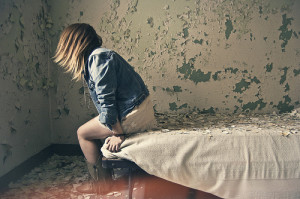 yyellowbird via Compfight cc
yyellowbird via Compfight cc
When I meet other people who live with mental illness, it’s inevitable that at some point the topic of hospitalizations comes up. It’s as if the number of times you’ve been committed is like a badge of honor.
It’s not, but it is at the same time.
When you’ve been in the hospital, you learn how to fight to get well. You learn to have compassion for other people’s struggles. You learn to realize that your brain just doesn’t work like a plain old regular person’s brain works.
And so you learn coping mechanisms for how to manage your illness.
In group sessions you’re taught how to listen and be present in the moment. You're shown how to use art to express your feelings and work through your emotions in art therapy. During the exercise class you might appreciate the calmness that comes from the breathing exercises and stretching of yoga.
But it doesn’t mean that you’ll be fine when you’re released. For me, having been hospitalized for mental illness was... a very traumatic event, each of the four times it happened.
When I came home from the hospital each time, I’d hide my feelings of guilt and shame, not really opening up about what I had been through to anyone but my therapist. It would take weeks to return to stable, and I was constantly desperate to talk with someone else who understood what I had gone through.
Luckily, I have met some friends through support groups and other avenues, who have also been through hospitalizations for mental illnesses, and it’s always interesting to compare notes. But when it comes down to it, those types of stays are all the same. Meds, therapy, paperwork, release. Then you’re on your own.
Through blogging I’ve had the privilege of hearing from some of my readers who've reached out to me via email saying they’re so glad I’m writing because stories like mine are important to share. They’ll sometimes tell me how hard of a time they’re having, and how they wish they could just go to the hospital for a week or two, maybe it would help.
What I want those readers to know is that going to the hospital may help take the edge off momentarily. But when you get out, and you’re back at home, it’s sometimes easy to fall right back to where you were before you were admitted.
Life goes on. The world keeps turning. And we have to keep on learning to lead the dance with our conditions, lest they turn us in the wrong direction.
For me, this means protecting my sleep. Last night my allergies were in an uproar, given the change in the weather this past weekend. My fitbit displayed a horrendous sleep pattern. I went to bed at 9:15pm (the earliest I’ve been in bed for the past three weeks by an hour) but yet it was quite possibly the worst night of sleep I’ve had in that many weeks.
But I won’t give up. I'm working on staying on top of my triggers to ensure I stay mentally healthy. For myself, for my family, and for my community.
And on that note, it’s time for me to hit the sack.
On Hiring A New Therapist
Change has always been a hard thing for me. When one season comes to an end, and another sweeps in to take its place, I usually need a good few weeks to adjust and settle in. Take this weekend, for example. I loved celebrating the end of August with our anniversary date night and the two days spent soaking up the end of summer at the pool with friends. But until we ease into our new school routine I’ll be fidgety and uncomfortable with the newness of it all.
Speaking of change, I had to break up with my therapist of five years because she stopped accepting my insurance and there was no way I’d be able to pay the regular office visit amount out of pocket. I’m sad about not seeing her again, and feel terrible about not having the chance to say goodbye at our last visit. But I guess that’s just the way life goes sometimes.
Tomorrow I’ll meet a new therapist who I’ll share details of my life with. It feels like the first day of school when everything is new and I’m excited and nervous at the same time for all the learning I know I’ll do while I’m there. I’m sure I won’t be able to cover my entire mental health history in our first visit. But in the event we do continue on after tomorrow, I have a few expectations for our sessions.
I hope she helps me figure my complicated self out.
I hope she challenges me to see things from a different perspective.
I hope she teaches me how to be more forgiving of myself.
I hope she realizes that just because for the past three years I’ve been a “high-functioning” bipolar 1 patient, doesn't mean I don't struggle with my symptoms on a regular basis.
I hope that we’ll hit it off and have a long-lasting patient-therapist relationship.
I know this is a tall order and I have high expectations... for how this will work out. The truth is, we may not have chemistry and I may have to try several therapists before I find one who meets my needs. I’m prepared to do that if I need to. I'm prepared to work through change.
I believe I didn’t invest enough effort with my last therapist. I didn’t go to the appointments with something in mind to work on. It was more like going to monthly appointments where I sat and blabbed about myself and what I had been doing since I had last seen her. It didn’t do me much good. I didn’t grow the way I believe therapy should help a person grow.
This time I want things to be different. I’m ready to work this time.
The sun is setting on one season and will rise with the next. Bring it on. I'm ready.
#OK2Talk: Join the Mental Health Movement
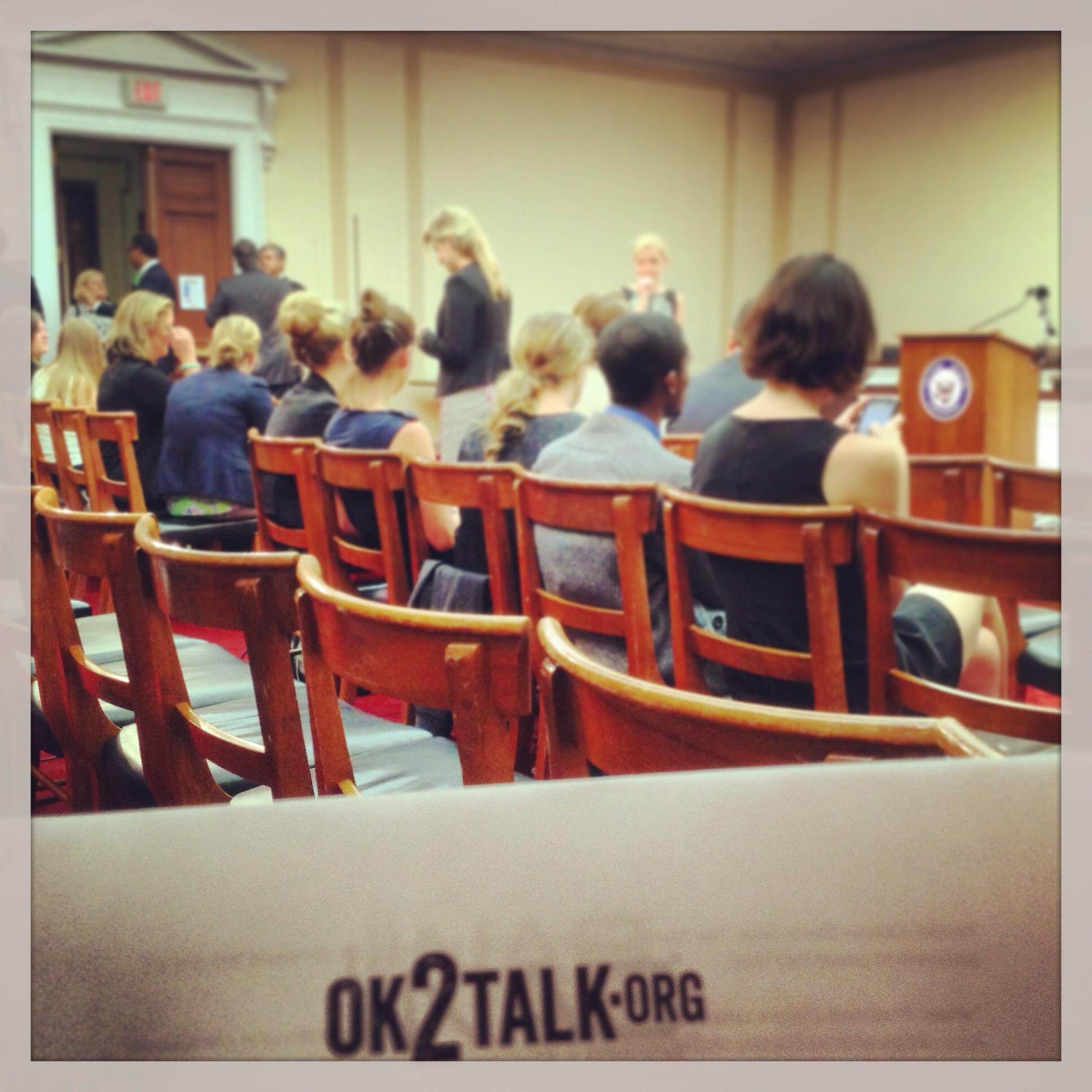 Experiencing a psychotic break can be an isolating and debilitating event. If I talk about it, will everyone think I’m “crazy”? Will I lose my friends? Will I lose my job? Will I ever get better?
Experiencing a psychotic break can be an isolating and debilitating event. If I talk about it, will everyone think I’m “crazy”? Will I lose my friends? Will I lose my job? Will I ever get better?
When mania grabbed a hold of my brain at the age of twenty-six, I thought my life was over. I had been hospitalized for three days and had to be tranquilized in order to force sleep, my mind brought back to reality only through the use of antipsychotics. The details were not pretty. I practically suffocated from the weight of keeping my pain bottled up inside. It seemed like no one in my immediate circle of family and friends understood what I had just gone through. My close friends tried, but the truth was everyone was so scared to talk about it.
I wanted desperately to find someone, anyone other than my psychiatrist and therapist, who knew what I was feeling. Wasn’t there anyone out there, a peer, who was like me?
My emotions pummeled my personality to the ground with their negativity. Thoughts raced through my head and nothing I did could make them stop.
Fear of the future. Guilt over what I had put my husband and family through. Sadness for the career that I had to leave behind. Disbelief in the words the doctors kept repeating. Anger that this was happening to me. Why me? Why?
I remember visiting bookstores with my parents where we’d search the Psychology section for titles that might help us understand what was happening to me. On one trip, my dad bought three thick paperbacks with promises on the cover which gave us hope. We went home and flipped through the pages, eager to find the answers to our questions.
We did find some, but they were clinical in nature. I was searching for different answers. I wanted to read personal stories of recovery and inspiration. I wanted to know that others had walked in my same shoes, had lost touch with reality, came crashing down to the darkest place they’ve ever felt, and made it out okay.
I wanted to know I’d be okay too.
Back then, in 2007, there weren’t many people blogging openly about bipolar disorder. There were women bloggers who were starting to open up about their experiences with postpartum depression, but blogging wasn’t nearly as prevalent as it is today. Social media was in its infancy, at least for regular Internet users like myself, so the ease in sharing information wasn’t quite there yet. You had to do the digging yourself, and my efforts at finding stories of hope and inspiration from other mental health consumers weren’t successful.
Back then.
The times, how they’re changing.
Today there are more and more people opening up each day about their journey to recovery from mental illnesses. There are blogs and vlogs, online support groups, Tedx talks, Facebook groups, and community performances which are educating the public on what it’s like to live with a mental illness. I’m proud to have opened up on my blog, sharing my true identity because I can now celebrate being a part of this change.
I can feel the change as its happening. I feel it in every email I get from a friend thanking me for writing about my story because they’ve been through something similar. I feel it in every message I receive on Facebook or Twitter from someone I’ve never met who has read my words and felt inspired to share their own.
This is how a movement starts.
It starts with one person who is brave enough to share, who inspires others to share, which in turn inspires the world to change.
On Tuesday I attended the launch event on Capitol Hill of #OK2TALK, a national media campaign produced by the National Association of Broadcasters in an effort to spread mental health awareness and teach young adults that sharing our stories of hope and healing can help others who are struggling. The campaign includes PSAs in both English and Spanish featuring teens and young adults talking openly about their experiences with mental illness. At the end of the ads, there is a call to action directing you to create the conversation about mental health online via social media.
NAB President and former Senator Gordon H. Smith described the campaign as “bringing the issue of mental health into the sunshine,” and I couldn’t agree more. I applaud the NAB for its commitment to increasing the awareness and understanding of mental health and I encourage you to contribute to the conversation via the blog, www.ok2talk.org.
Help is available and treatment is effective, and by encouraging society to be supportive of those struggling we will save lives.



